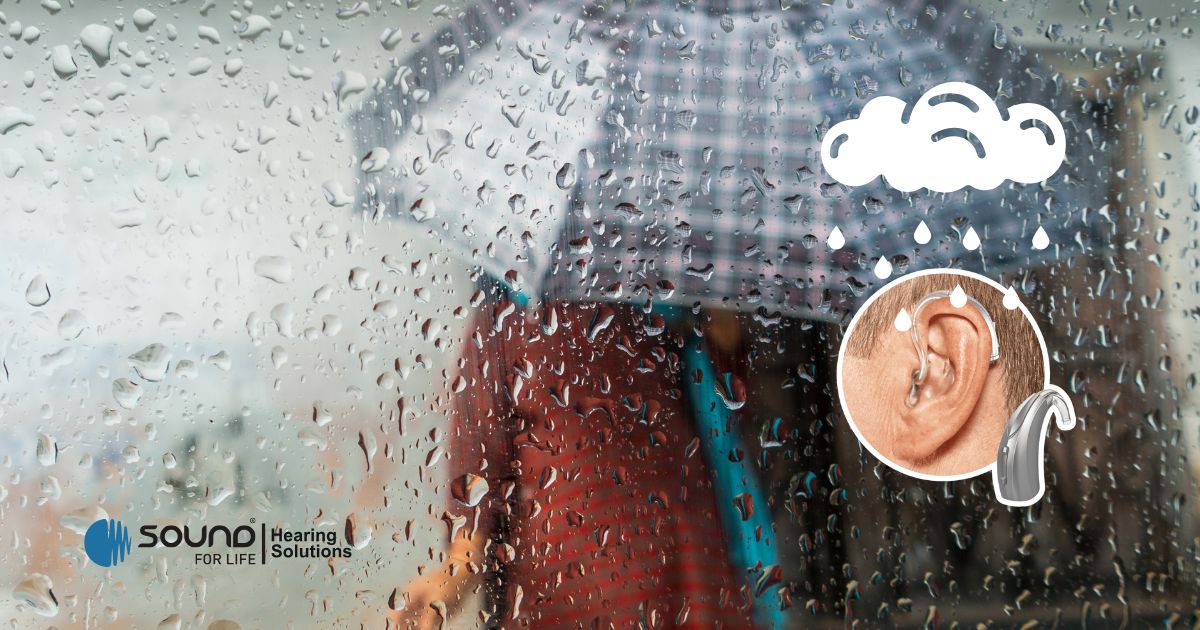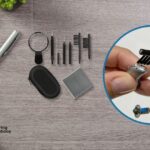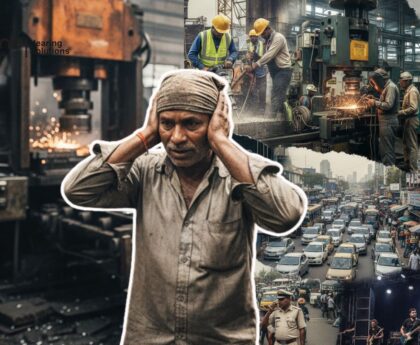For a lot of people in India, Hearing aids are more than just hearing devices; they are lifelines that help them connect with family, work, and the world around them. Just like smartphones or glasses, hearing aids too need special care, especially in a country like India where the weather and humidity can change a lot.
You’re not the only one who has wondered why your hearing aids sometimes stop working in the monsoon or why they feel uncomfortable in the heat of summer. Every week, we at SFL Hearing Solutions meet a lot of people who have trouble with their hearing aids because of the weather.
This blog is about how India’s unique climate, which ranges from dry heat in the north to humid air on the coast, affects hearing aids and what you can do to keep them safe.
A Quick Look at India’s Weather
India has some of the most varied weather in the world. Knowing these patterns will help us understand why hearing aids can be weak here:
- Hot summers (from March to June): Many places get hotter than 40°C. A lot of people sweat too much.
- Monsoon Season (June to September): Heavy rains, high humidity, and weather that changes quickly.
- Cold winters (November to February): The air is dry in the northern states, but it can be wet in some southern and coastal areas.
Each of these weather patterns can put stress on hearing aids in different ways.
How the weather and humidity affect hearing aids
1. Water collecting in humid weather
Humidity is bad for electronic devices, and hearing aids are no different. During the monsoon season, humidity levels in coastal areas of India like Mumbai, Chennai, and Kochi can be anywhere from 60% to 90%.
How hearing aids are affected:
Moisture gets into speakers and microphones, which makes the sound static or muffled.
Corrosion can hurt sensitive electronic parts.
Moisture greatly shortens the life of batteries.
2. Get sweaty in the hot summer
Sweat is mostly salty water, and salts can quickly eat away at metal parts. In the hot Indian summers, spending a lot of time outside or even just going for a walk at night can make sweat drip into hearing aids.
Problems that happen:
Short circuits inside the device.
Moisture getting trapped between the aid and the skin can cause ear pain.
More service is needed.
3. During the Monsoon Exposure to rain and water
You know that sudden rain showers are common in India! Even a little bit of water getting on a hearing aid by accident can break it.
If water gets into the sound ports, the device could completely shut down.
Damage that lasts forever if not dried right away.
4. Dust and Dry Air in the Winter
Hearing aids can also be affected by the dry, dusty air in the north (Delhi, Rajasthan, and Uttar Pradesh) during the winter. Dust can block microphones, and dry air can make static noise because it doesn’t have enough moisture.
Why Weather Affects Hearing Aids More in India
India’s weather makes it extra important to take care of hearing aids because it changes all the time, unlike some other countries where the weather stays the same.
- Weather can change fast: One day the air feels dry, and the next it’s heavy with humidity.
- Long monsoon seasons: The devices and belongings are exposed to moisture for weeks at a time, which raises the chance of corrosion, mold, and other problems.
- Everyday life and cultural events: Crowded and noisy festivals, outdoor celebrations, long travels, or days spent at open-air markets often push people into varying environments where sweat, dust, rain, and humidity mix.
Because of all these reasons, taking regular care, safe storage, and quick drying are especially important.
Weather Can Affect Your Hearing Aids
Wondering if heat, humidity, or moisture are affecting your device? Watch for these warning signs:
- Sound that is distorted or full of static.
- Working on and off at times.
- Less time the battery lasts.
- Sounds like whistling or feedback.
- A feeling of moisture or condensation in the ear mould.
- Things need to be fixed repeatedly..
If you notice these problems more often in the summer or during the monsoon, the weather is probably to blame.
Useful Tips for Keeping Hearing Aids Safe in India
The good news is that there are many easy things you can do all year long to protect your hearing aids.
1. Buy a dehumidifier for your hearing aid.
- A must-have in cities in India with a lot of humidity.
- A dehumidifier can get rid of trapped moisture by storing things overnight.
- You can choose between silica-based drying jars (which are cheaper) and electric hearing aid dryers.
2. Put on hearing aid sweatbands or covers
- These are little sleeves that go over hearing aids to keep them safe from sweat and dust.
- Very helpful for working out or spending time outside in the summer.
3. Store things safely
- When you’re not using them, keep your hearing aids in a cool, dry box.
- Don’t leave them in bathrooms or kitchens where the air is damp.
- Don’t let direct sunlight hit the dashboard of your car (which happens a lot in Indian summers).
4. Be careful during the rainy season
- You should always have an umbrella or raincoat with a hood.
- If you get caught in the rain, turn off your hearing aids right away and dry them as soon as you can.
- If you live in a place where it rains a lot, you should use models that are water-resistant.
5. Cleaning on a regular basis Key
- After each use, wipe it down with a soft, dry cloth.
- Gently remove earwax because it traps moisture.
- Use the kit your hearing care professional gives you to clean your microphones and receivers.
6. Change batteries often in places with a lot of moisture
- Batteries run out of power faster in places with a lot of moisture.
- Keep extra batteries in a cool, dry place, like a cupboard (not a fridge).
7. Go to professionals for checkups
- Regular maintenance finds hidden corrosion early.
- We offer professional cleaning and maintenance services at SFL Hearing Solutions that are made for the weather in India.
New Hearing Aid Features to Help with Weather Problems
Technology has improved a lot in recent years. If you are planning to buy new hearing aids in India, choose models built to handle tough weather:
- Look for water- and dust-resistant ratings like IP67 or IP68 (these indicate protection against splashes, heavy humidity and short immersion)
- Opt for nano-coating or hydrophobic finishes that repel sweat and moisture. Together, these features reduce corrosion, keep the electronics working reliably through monsoon season and outdoor celebrations, and help your hearing aids last longer with less fuss.
- Rechargeable devices with batteries that are sealed to keep moisture out.
- Apps that connect to your smartphone and let you know if the battery is draining too quickly, which could mean that moisture has damaged it.
How SFL Hearing Solutions Can Help
At SFL Hearing Solutions, we know how much India’s changing weather can affect people who wear hearing aids, from the blistering heat in Chennai and dust-filled winters in Delhi to the long, wet monsoons in Mumbai.
- We work with each client to choose devices that suit their daily life and the local climate.
- We teach simple care routines that keep aids working well for longer.
- Whether you need water- and dust-resistant models, moisture-repellent coatings, or easy-to-maintain rechargeable options, our team helps you compare features, try devices, and pick the best fit.
- We also offer free consultations to make that choice easier. In a consultation we will:
- Review your hearing needs, lifestyle, and the local environment you spend time in.
- Suggest models that come with features that can resist humidity, dust, and heat.
- Provide a free trial period, so that you can see how the device feels and performs.
- Demonstrate the cleaning procedure, storage, and quick-care techniques to shield your hearing aids from dust and moisture.
- We also provide warranty, service and aftercare options so you can keep your hearing aids working reliably for years. And also the warranty covers (parts, repairs, workmanship), and it also includes accidental damage, water exposure, loss or theft.
- Provide routine service plans: our experts will clean and inspect your aids, whether it requires software updates or fine-tuning.
Aftercare is what you do every day: wipe your aids after use, store them in a drying box or dehumidifier overnight, replace or recharge batteries as recommended, and have wax guards and tubing changed regularly. Schedule periodic professional check by an audiologist at SFL Hearing Solution and get your aids settings adjusted, replace worn parts, and catch small problems before they become big ones. Get advice from the experts at your nearest SFL clinic today.
Commonly Asked Questions in India Regarding Weather and Hearing Aids
Q1: Can rain damage hearing aids for good?
Yes. If they are not dry quickly, even a few drops of water can damage sensitive parts. After that, always put them in a dehumidifier.
Q2: Is it safe to wear hearing aids while working out in the summer in India?
Yes, but you should definitely use sweatbands or covers to keep them from rusting.
Q3: Do rechargeable hearing aids last longer when it’s humid?
Yes. Usually the rechargeable models come with sealed battery compartments that keep moisture away.
Q4: Should I stop wearing my hearing aids when it rains?
No! Just be careful (use umbrellas, dehumidifiers, and protective cases). If you take care of them properly, modern hearing aids are built to last.
Important points
- India’s weather, high humidity, heavy sweating, dust, and sudden rain, has a major impact on how well hearing aids perform.
- Moisture is the single biggest threat: it can corrode parts, shorten battery life, and reduce sound quality.
Prevent problems before they start by following a simple care routine:
- store your hearing aids overnight in a dehumidifier or drying box
- use protective covers or sleeves when you’re out in dust, rain,
- while exercising, wipe them with a soft, dry cloth after each use
- clean vents and wax guards on a regular schedule
- bring them in for professional cleaning and checks as recommended.
- for long-term reliability, choose a durable, water-resistant model, it makes a big difference.
- With routine expert examinations your devices continue to function efficiently throughout the year .
In conclusion, keep your hearing aids safe to keep your hearing safe.
Protecting your hearing aids protects your hearing. These devices do more than amplify sound, they keep you connected, confident, and engaged. In a climate like India’s, a little extra care goes a long way toward making them last.
No matter what the weather is like, we at SFL Hearing Solutions love helping people hear better. We are here to help you choose weather-resistant models, service your current aid, or learn how to care for your device in Indian conditions.
Do something today!
Call SFL Hearing Solutions for a free consultation to learn how to keep your hearing aids safe in India’s harshest weather.





